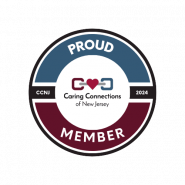By Tony Dearing | NJ Advance Media for NJ.com
published April 22, 2019
The science of epigenetics offers a potential new way to combat Alzheimer’s. (photo above: Canva)
Scientists have identified dozens of genes that may contribute to Alzheimer’s disease.
But just as genetic makeup plays a role in the risk for Alzheimer’s, new drugs designed to alter your genes could bring us closer to a cure.
The concept is called epigenetics, and one of the more promising drugs in this new avenue of Alzheimer’s research is now being studied in New Jersey.
Princeton Medical Institute is the first study site in the United States to join a clinical trial for ORY-2001, a drug designed to slow cognitive decline and restore memory in patients with mild to moderate Alzheimer’s disease.
The institute is looking for adults in New Jersey between the ages of 50 and 85 who might be eligible to take part in the study, which will test both the safety and effectiveness of the medication.
Dr. Jeffrey Apter, founder of Princeton Medical Institute, has been involved in Alzheimer’s research for more than 30 years and says the ORY-2001 drug represents a welcome new approach in the quest for a cure.
“This is a study we are very excited about,” Apter says. “We feel this is something very special. The early Phase I data is very positive. We feel this is something that may offer a very special benefit.”
Alzheimer’s research has stalled over the past couple of decades, bringing a string of disappointments as drugs primarily designed to attack the disease by clearing away beta-amyloid “plaque” in the brain have failed to work.
This plaque is a gummy substance that builds up in the brain of Alzheimer’s patients. Dr. Apter says while beta-amyloid plaque is a hallmark of Alzheimer’s, efforts to remove it have not proven to prevent or reverse the disease, and it’s not clear that approach will ever work.
“We feel amyloid may just be a marker and not the actual cause of Alzheimer’s disease,” he says. “We believe amyloid alone is not going to be the answer. We really are looking for some new ideologies.”
One of the new approaches being embraced in research is epigenetics, the science of how genes express themselves.
The genetic makeup we are born with is a given, and cannot be altered. But the degree to which certain genes impact our health is malleable, and epigenetic drugs seek to reduce — or magnify — that impact.
In the case of ORY-2001, it is designed to help allow certain genes to better protect against Alzheimer’s, reducing inflammation and boosting neural pathways in the brain. The drug is being developed by Oryzon, a biopharmaceutical company based in Barcelona, Spain.
The new study now underway at Princeton Medical Institute is what’s called a Phase II clinical trial, and involves taking the medication orally for a period of 24 weeks. The goal is to test the drug on 150 patients at study sites across the country.
Apter says the institute is recruiting participants for the trail, and finding enough volunteers is essential to the cause of curing Alzheimer’s.
“We need for people to participate in a clinical trial,” he says. “Without patients, we can’t get these things done. The only way we will get the medications we need is through clinical trials.”
Anyone interested in participating in the study can call Princeton Medical Institute at (609)-921-6050. You will receive more information about the study and can be scheduled for a free memory screen.
Dr. Jeffrey Apter says getting a memory screen is valuable for anyone concerned about brain health or memory loss, and recommended for adults age 65 or older.
“We encourage everyone who is interested to get a baseline memory screen,” he says. “We do this on our own, free of charge.”
The results of a memory screen can help determine whether the person might be a good candidate for the ORY-2001 clinical trial, or perhaps one of the other Alzheimer’s studies that the institute is involved in.
“That happens every day,” Apter says. “People come in for one trial, and they don’t happen to qualify for that trial, but they qualify for another one.”
Apter says there are many good reasons to take part in a clinical trial. For one thing, there is the altruistic benefit of knowing that you are helping to find a cure for the benefit of future generations.
And if the experimental drug works, the patients taking part in the study will have already received the drug rather than having to wait years for it to gain FDA approval and become available to the public.
Taking part in a clinical trial also offers a chance to receive a high level of care at a leading medical institution. That can include a full medical workup, as well as an MRI or PET scan, all free of charge.
“It’s something really good for the patient; it’s good for you mental health, it’s good for brain health,” Apter says.
Apter is encouraged by the potential of experimental treatments like ORY-2001 and the progress being made overall in Alzheimer’s research. He recently returned from an international Alzheimer’s conference in Lisbon where a variety of promising new approaches were discussed.
The United States has established a federal mandate to find effective treatments for Alzheimer’s by the year 2025, and based what he saw in Lisbon, Apter believes that is achievable.
“The state of Alzheimer’s research is very healthy,” he says. “We have several thousand drugs in development and several hundred clinical trials going on. We’re still hopeful to achieve that goal.”



